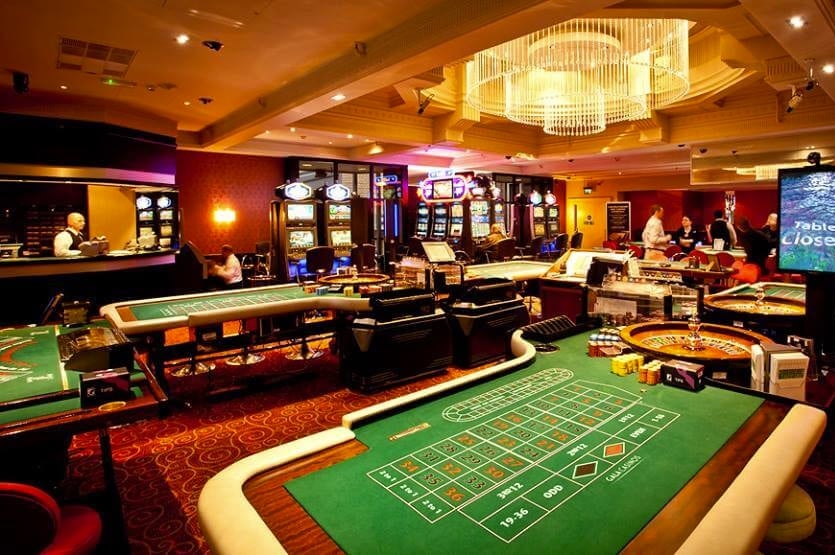
Casino games have fascinated players over the ages, evolving from simple pastimes to complex experiences that integrate fortune, tactics, and amusement. From the early beginnings of gambling in societies including the ancient societies of Mesopotamia and Rome to the dazzling corridors of current casinos, the journey of these games shows much about human nature and our interaction with risk. As cultures have merged and technological advancements have occurred, casino games have transformed, reflecting shifts in society and innovations in gameplay.
The earliest forms of gambling likely featured elementary dice games and placing bets on the outcomes of athletic contests. Through the years, these basic forms of gambling grew into more complex games like table games, roulette, and the variety of slot machines that fill casino floors today. Every generation brought its distinct regulations, design elements, and sociocultural significance. At present, casino games persist in evolving with the rise of online platforms, enabling players from all corners of the globe to engage in a shared experience, further fusing the traditional with the modern era.
Ancient Beginnings of Gambling Activities
Casino activities have roots that stretch back to ancient civilizations, where wagering was deeply integrated in social traditions and social customs. The initial known forms of betting emerged in ancient Mesopotamia around three thousand BC, featuring basic dice activities made from knuckle bones. These primitive activities laid the groundwork for more advanced betting activities, reflecting human beings’ innate desire to seek fortune and amusement through chance.
As civilizations evolved, so did their betting interests. In historic China, around 2300 BC, objects were unearthed that were similar to early rudimentary forms of a lottery game activity. More organized forms of betting arose in the Roman Empire, where games of chance were a common recreation, often taking place in community events. The Romans developed multiple wagering activities, which entailed dice and table activities, illustrating the widespread nature of betting across different social classes.
With the flow of time, these primitive activities influenced the development of modern gambling activities. In the medieval period, playing card games grew prevalent in Europe, paving the way for the organized gaming establishments we know today. MM888 The shift from informal gambling to organized gaming in taverns and private houses marked a significant shift in how people interacted with activities of luck, leading to the eventual establishment of gaming houses as dedicated venues for betting.
The Emergence of Modern Gambling Industry
The final 20th century marked a pivotal change in the realm of casino games, propelled by technological progress and changes in societal views towards wagering. The emergence of personal computers and the World Wide Web altered the way players engaged with their preferred gaming experiences. Online casinos emerged, allowing enthusiasts to enjoy classic casino classics like poker and blackjack from the convenience of their homes. This new online environment not only broadened access to casino games but also drew in a younger audience who found the comfort and variety attractive.
As online gaming gained popularity, so did innovations in gaming technology. The development of advanced software and visual elements transformed classic casino games into captivating experiences. Gamblers could now connect with authentic live dealers through live feeds, bringing the vibe of brick-and-mortar casinos directly into their homes. This fusion of in-person play with online platforms created a unique hybrid experience that enhanced the community element of gambling, allowing it possible for people to connect and challenge with fellow gamers around the globe.
Additionally, the growth of mobile gaming substantially changed the casino landscape. With the widespread use of mobile phones and touch devices, gamblers can enjoy their preferred gaming options anywhere, at any time. Mobile applications offer a wide selection of options optimized for mobile screens, serving the busy daily life of modern users. This availability has resulted in growing engagement in gambling, fostering the rapid expansion of the gaming industry. As a result, the outlook of casino gaming continues to progress, adapting to technological advancements and changing player expectations.
How Technology Influences Casino Games
The evolution of technology has greatly changed casino games, improving the overall experience for players for gamblers globally. As the internet emerged, online casinos were created, allowing players to enjoy their favorite games from the comfort of their homes. This shift not only made casino games more available but also expanded the variety of games available, as online platforms could host numerous variations of traditional games without the physical constraints of physical casinos.
The rise of mobile technology further revolutionized the casino gaming landscape. With the proliferation, players can to play casino games whenever and wherever they want. This mobility has led to the creation of dedicated mobile applications and optimized websites that offer smooth gaming experiences. Additionally, innovations such as live dealer games have delivered the genuine feel of a casino into players’ homes, bridging the gap between physical and online gaming.
Furthermore, advancements in AI and virtual reality are paving the way for the next generation of casino games. AI improves game design and player interaction, creating tailored experiences based on user behavior and preferences. Meanwhile, virtual reality offers immersive environments where players can interact in a virtual casino environment, making the gaming experience more engaging and realistic. MM888 As technology continues to evolve, the future of casino games looks promising, filled with limitless opportunities for innovation and entertainment.